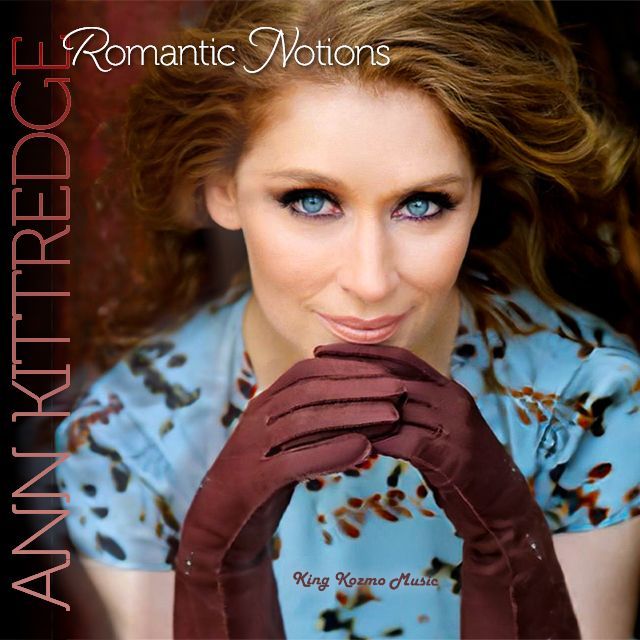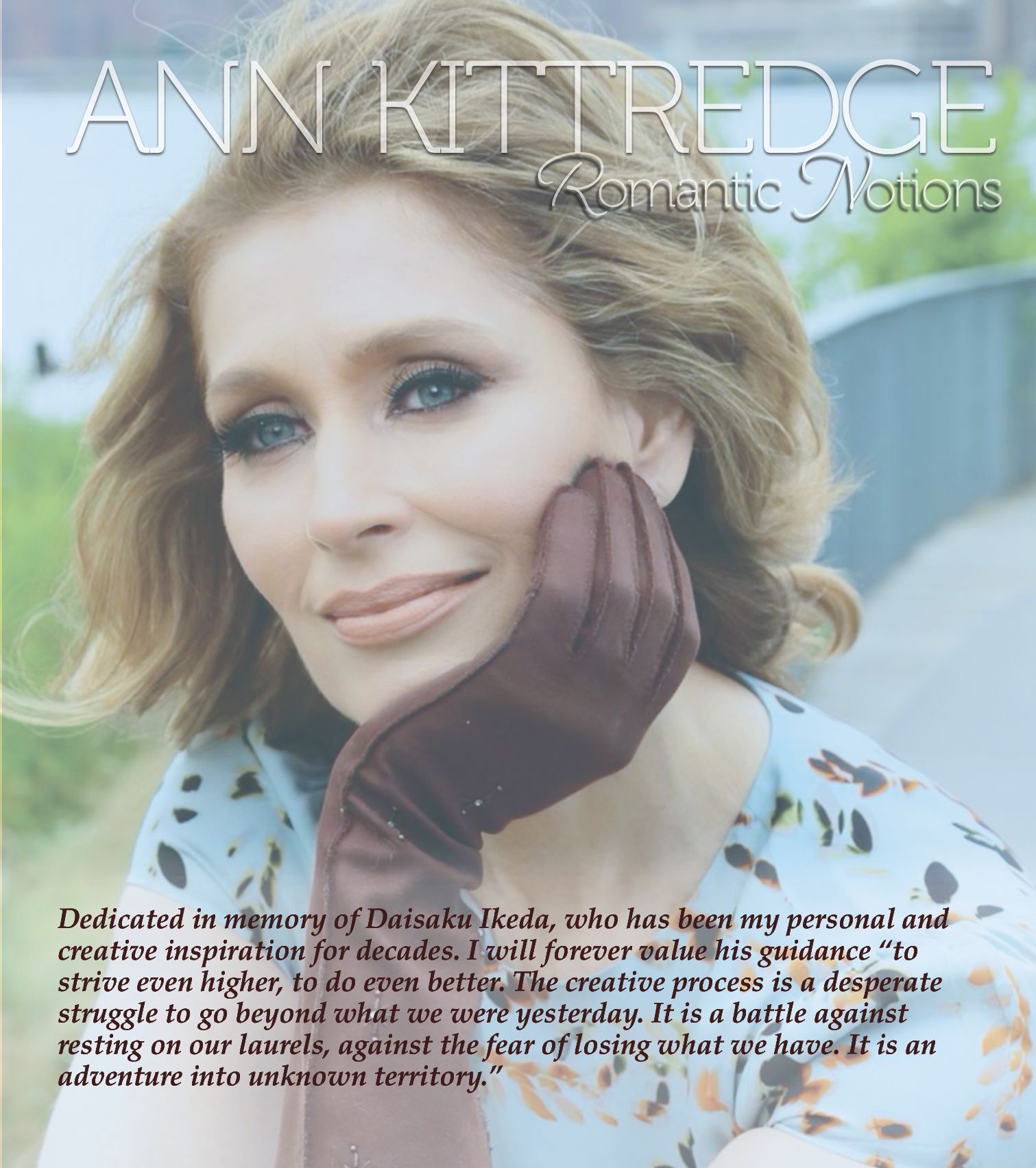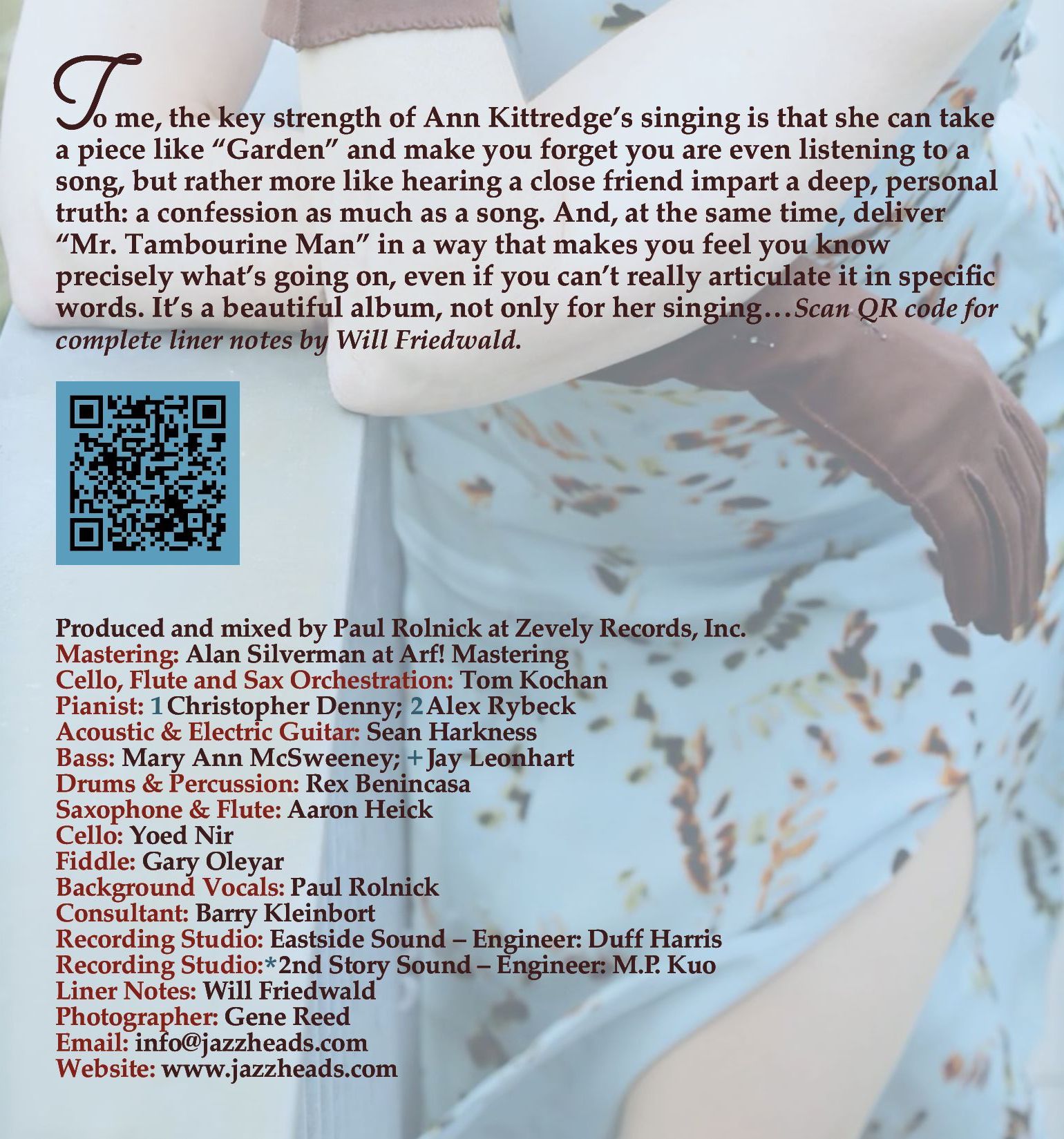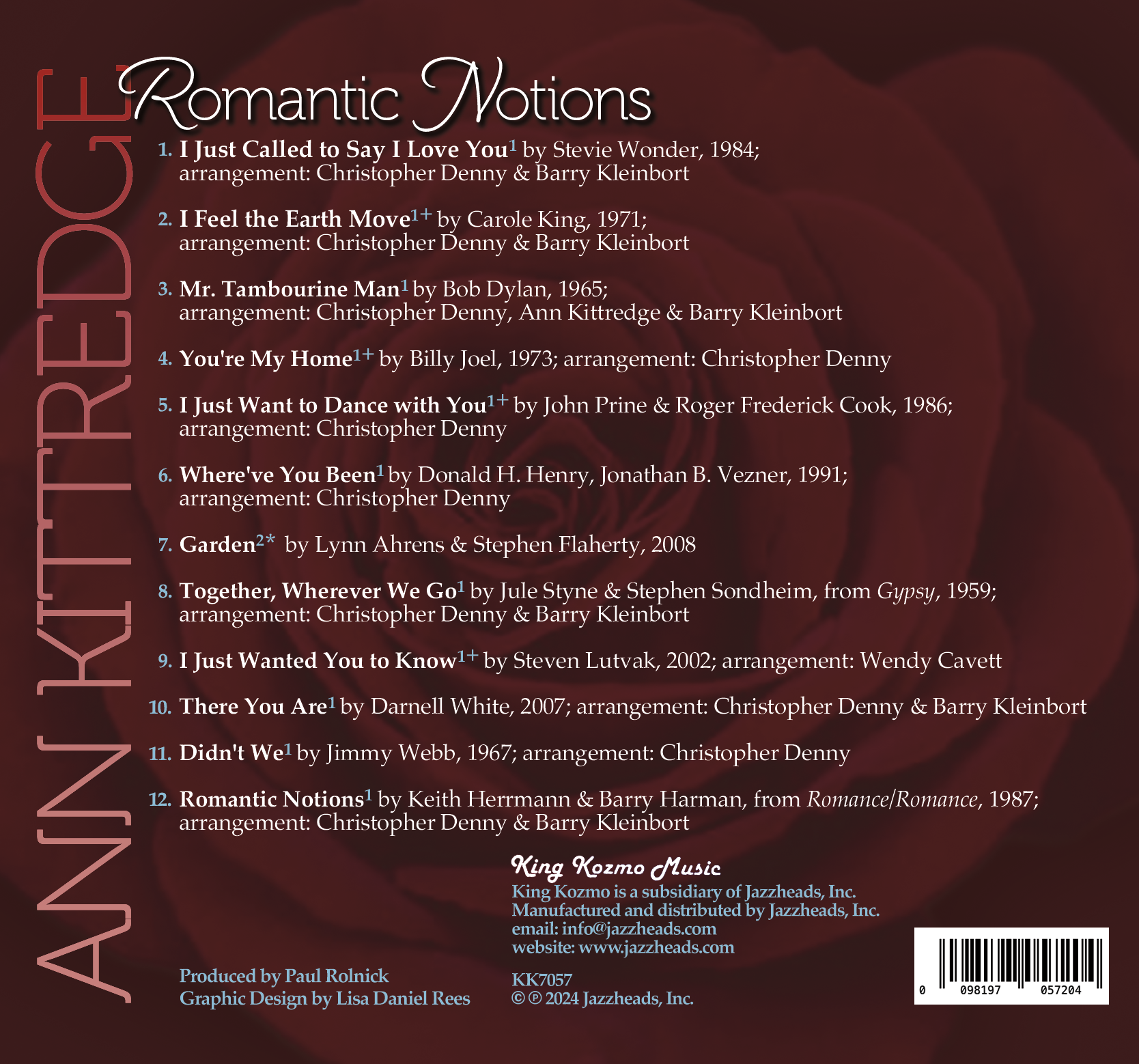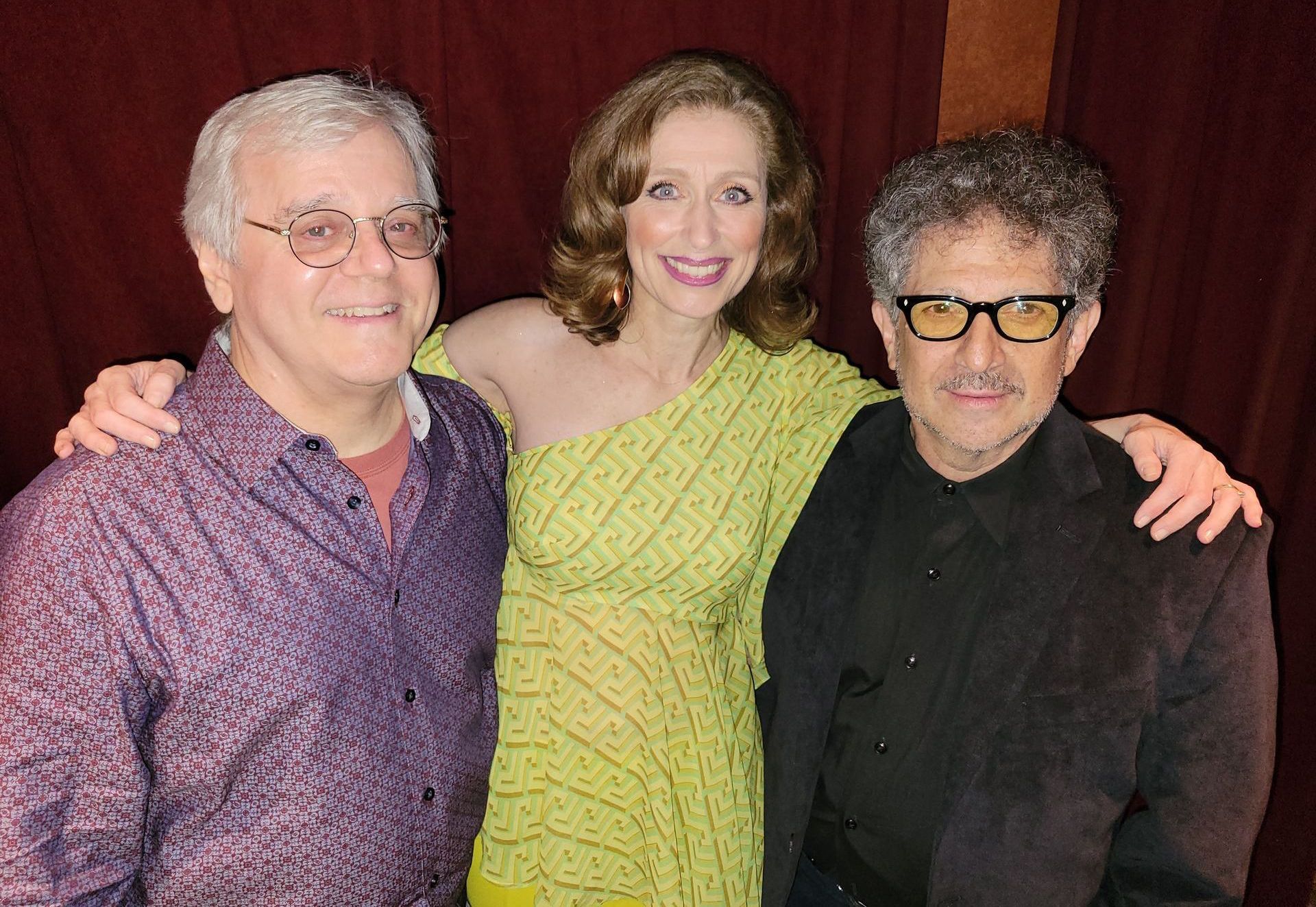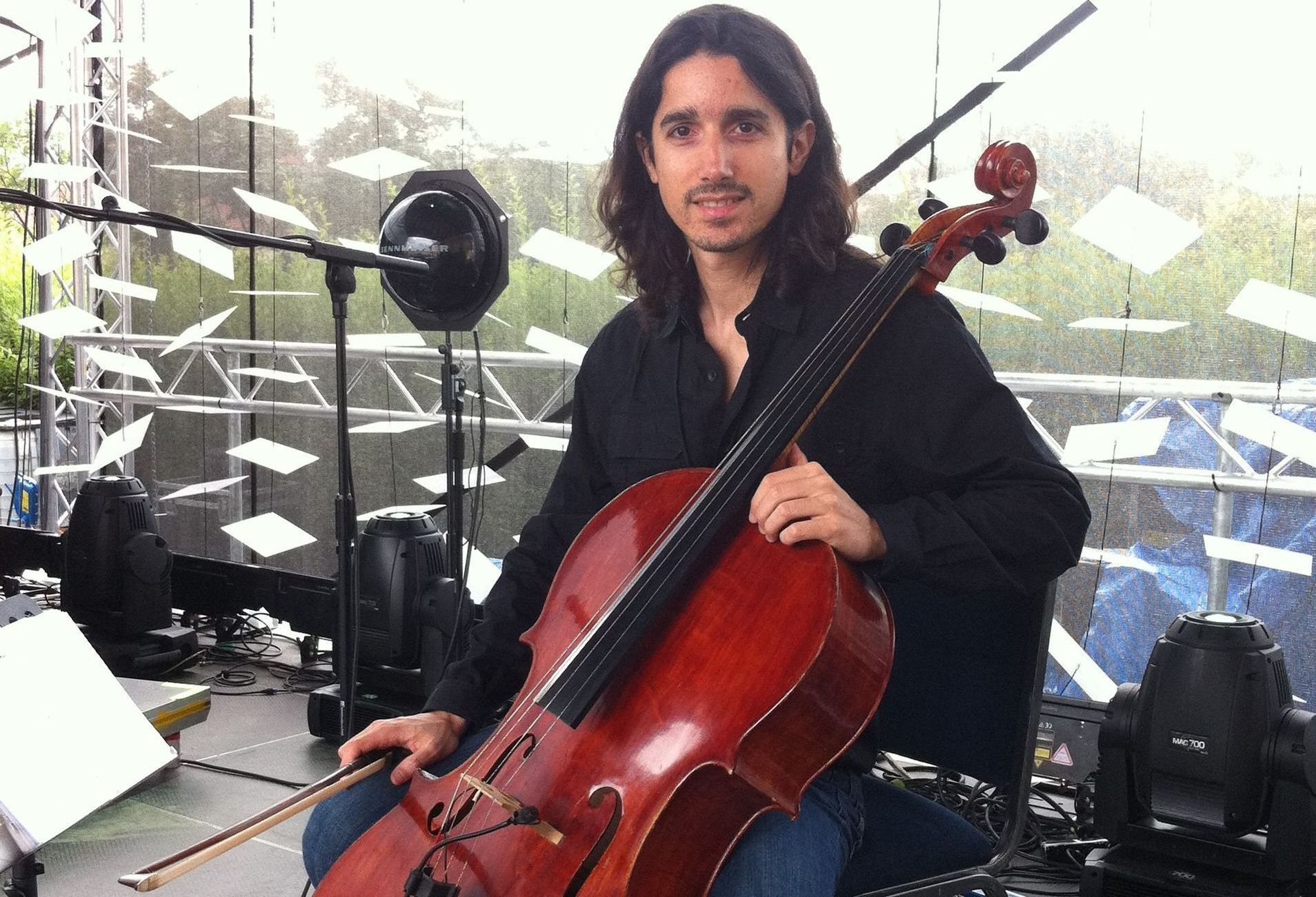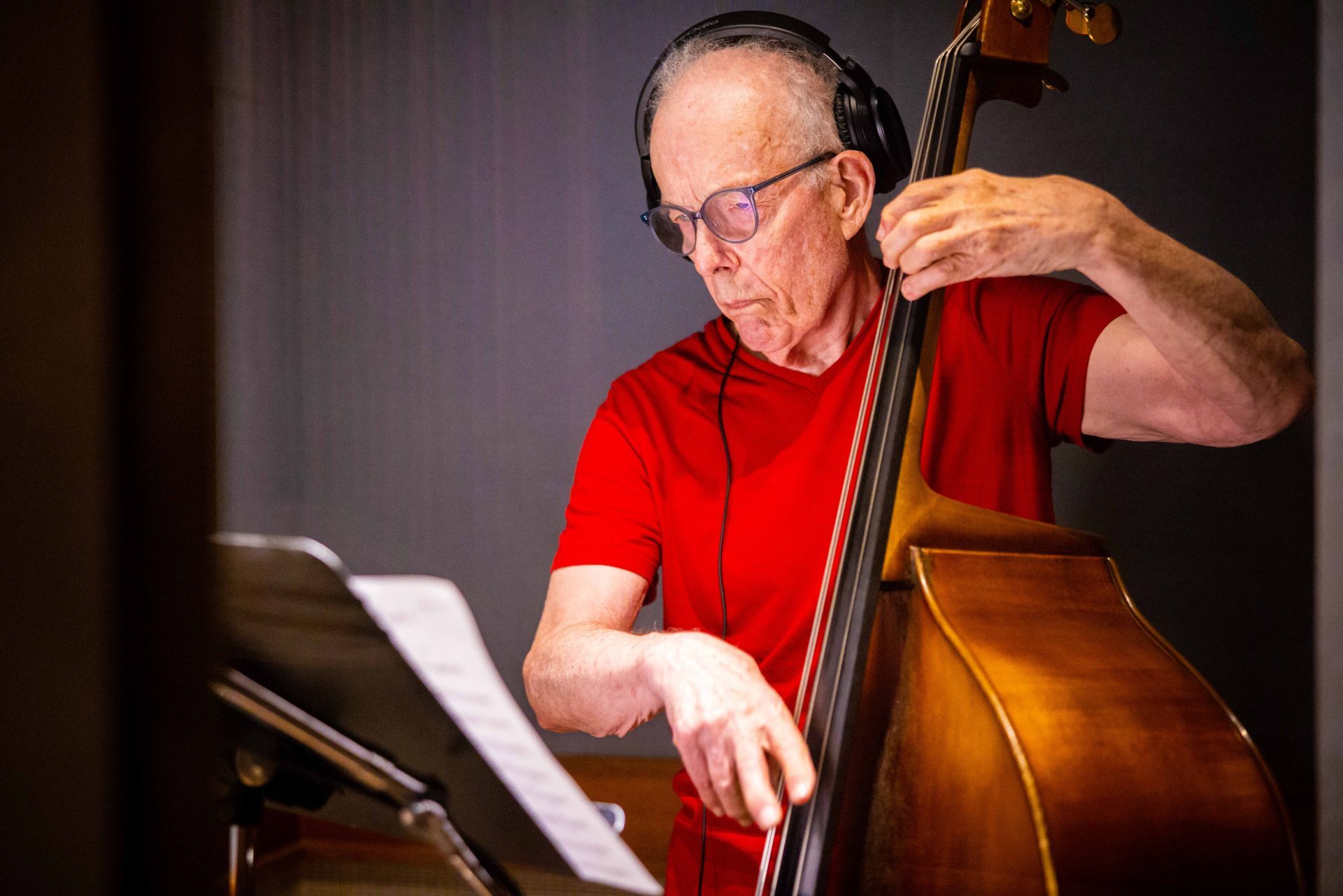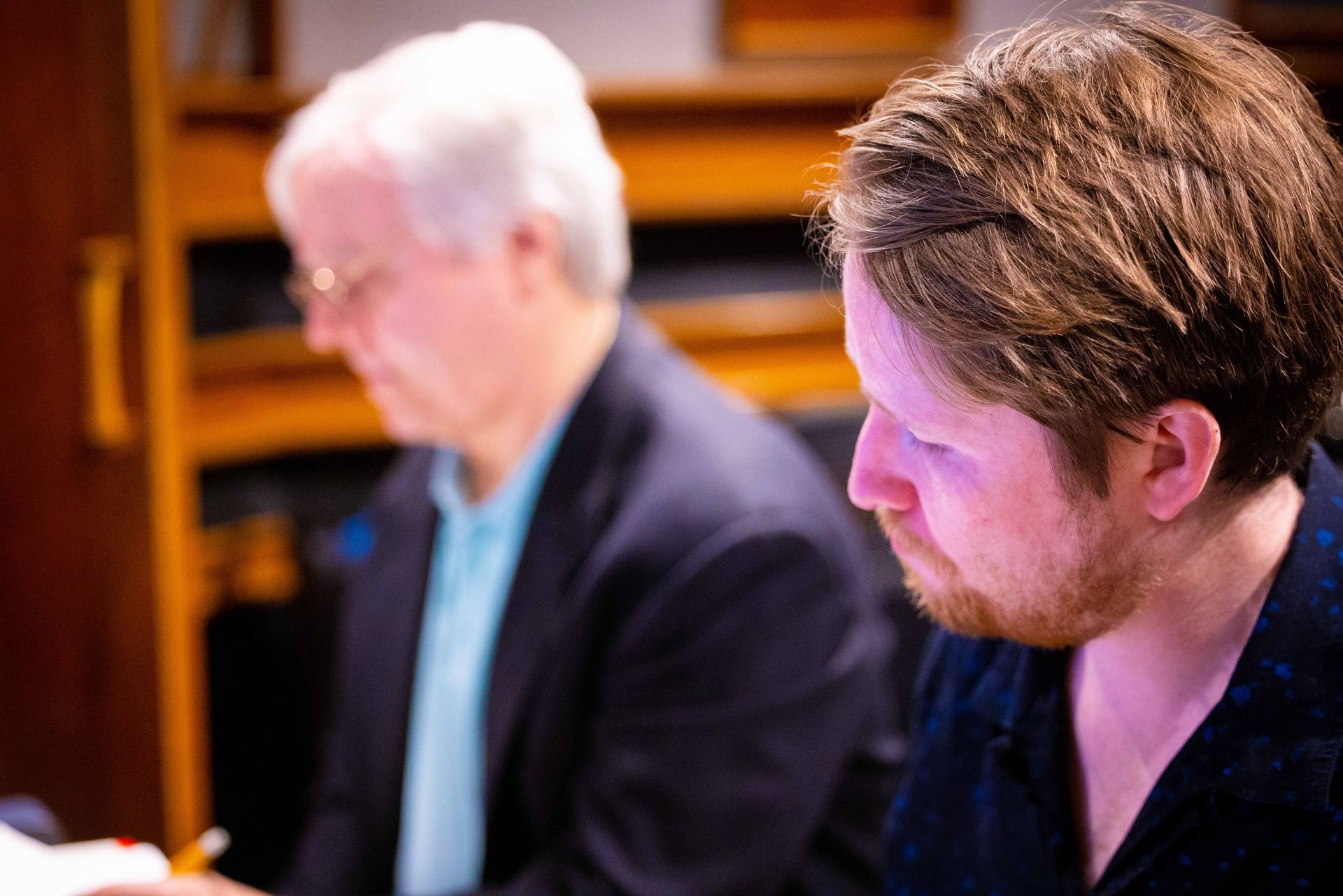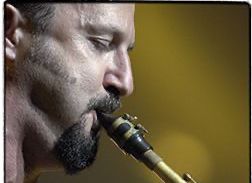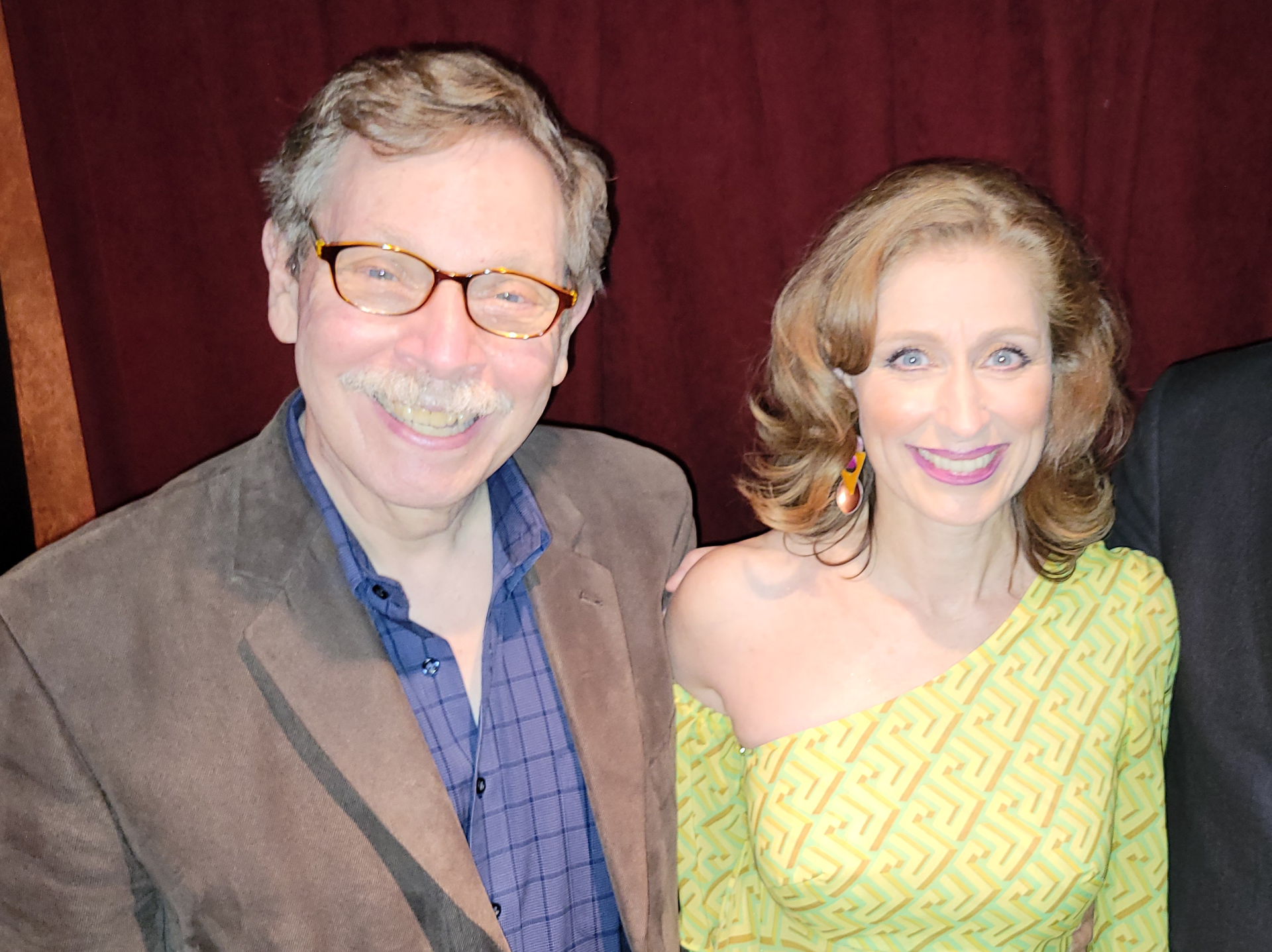
Romantic Notions Tracks
Button
Liner Notes
Button
About Those Notions
– Geva Theatre, Rochester Chronicle
CD Packaging Graphics
– Brenda Vaccaro
Dedication
Button
and

Creative Team Photo Gallery
Button
by Will Friedwald
This is a “Mr. Tambourine Man” like I’ve never heard before. Normally, the song is a series of random images that gradually cohere into a statement, or a series of observations. Ann Kittredge, however, sings it like a full-on story song, with a beginning, a middle, and an ending. Now, granted, it’s hard to be 100% certain as to exactly what that story is, but that’s a big part of what makes it so intriguing; it’s like watching a play enacted in silhouette, or, trying to make out a melody being played on a tambourine. For the first time, she makes me feel like there’s an actual narrative here, that we’re starting somewhere and progressing to somewhere else. Like the tambourine itself, all the right beats are there.
It’s to Ann Kittredge’s credit that she makes “Tambourine Man” sound like no less a musical soliloquy like “Garden.” The distinguished team of Lynn Ahrens and Stephen Flaherty gifted Ann with their stand-alone song “Garden,” and it’s a beautiful song. It’s almost too much of a story to fit into a conventional work of musical theater, and was always intended for a revue-style format, like the Richard Maltby-David Shire work
Closer Than Ever,
which is a collection of unconnected story songs.
Those two songs, “Tambourine Man” and “Garden” set up the parameter’s of Ann Kittredge’s musical storytelling: the first is vague and surreal, the second is incredibly specific, down to a remarkable level of detail - even down to the description of the flowers in her garden and the particular ways in which they bloom. It’s a beautiful album, not only for her singing, but for the work of pianist and musical director Chistopher Denny and the contributions of the highly sagacious Barry Kleinbort.
To me, the key strength of Ann Kittredge’s singing is that she can take a piece like “Garden” and make you forget you are even listening to a song, but rather more like hearing a close friend impart a deep, personal truth: a confession as much as a song. And, at the same time, deliver “Mr. Tambourine Man” in a way that makes you feel you know precisely what’s going on, even if you can’t really articulate it in specific words.
“Garden” and “Tambourine Man” express a lot of complex ideas, while “I Just Called To Say I Love You” and “I Just Want To Dance With You” are ostensibly simpler songs that basically just express one central idea each. The Stevie Wonder song is essentially a counter-intuitive list of things that it is not, i.e., “No New Year's Day to celebrate / No chocolate covered candy hearts to give away…” and it’s enlivened by an unexpected use of an Afro-Latin style clavé beat. Likewise, “I Just Want To Dance With You” - written by John Prine and a hit for country superstar George Strait, also starts by directing our attention to what it isn’t: “I don't want to be the kind to hesitate / Be too shy, wait too late.” They’re just quick, fleeting, almost random glimpses into someone’s soul, and Ann makes the most of them, doing more with less.
“Together, Wherever We Go” is another very special interpretation, for the simple reason that it makes a classic song work in an entirely different way than its creators intended - or does it? In
Gypsy, “Mama Rose” uses the song to quell the doubts of those around her, to cheer them up, and, on another level, distract them from her selfish machinations. Ann’s version is also sung by a mother to a child, but it’s a truly sincere lullaby of love and care from a woman, who, unlike Mama Rose, is driven by something other than furthering her own ends. Chistopher Denny reinforces that message of genuine devotion by using the familiar Brahms “Wiegenlied” as a frame at the beginning and end.
“Romantic Notions” comes from the very unconventional 1988 Broadway musical Romance/Romance and provides an understated title for the album, since, as we’ve seen, not every number is a stereotypical love song. But even so, all the creative impulses detailed and delineated here can be described as romantic notions of some kind. That song itself, “Romantic Notions” and “Didn’t We” are both enhanced considerably by Yoed Nir’s expressive cello, which dwells in precisely the right sonic range to pair beautifully with Ann’s lovely voice. “Romantic Notions” is essentially positive, whereas “Didn’t We” is a tale of regret, and both express hope.
“Where've You Been” and “There You Are” would seem to go together as a question and its answer; the former is thoughtful, melancholy and unsettling in a way that has me pondering my life. Contrastingly, Billy Joel’s “You’re My Home” feels like a resolution to those same issues.
“I Just Wanted You to Know” is another multilayered story song, with lots of complexities, written by the Tony-winning composer Steven Lutvak, who died suddenly and tragically while this album was in production. It’s a song filled with the little details of life, and shows how seemingly random memories can add up into a fully-formed picture of a life, like pieces in a puzzle.
Carole King’s “I Feel the Earth Move” has sort of become a defacto feminist anthem over the last 50 years, but Ann sings it with a lot more sensitivity, bringing the song back to what seems to be the composer’s original intentions - restoring and bringing those romantic notions that are still at its core. Like that song says, “Let your vision soar - that’s what dreams are for.”
Will Friedwald writes about music and popular culture for The Wall Street Journal, The New York Sun, The New York Stage Review, Vanity Fair, Playboy magazine and other publications. He is also the host of the radio show Sing! Sing! Sing! on San Diego KSDS on Saturday mornings. He also is the author of ten books including the award-winning
A Biographical Guide To The Great Jazz And Pop Singers, Sinatra: The Song Is You, Stardust Melodies, Tony Bennett: The Good Life, Looney Tunes & Merrie Melodies,
and
Jazz Singing. He has written over 600 liner notes for compact discs, received eleven Grammy nominations, and appears frequently on television and other documentaries. He is also a consultant and curator for Apple Music. Current books :
The Great Jazz And Pop Vocal Albums (Pantheon Books / Random House, November 2017), Sinatra: The Song Is You! - New Revised Edition (Chicago Review Press, May 2018) and
Straighten Up and Fly Right: The Life and Music of Nat King Cole (Oxford University Press, July 2020).
About Those Notions
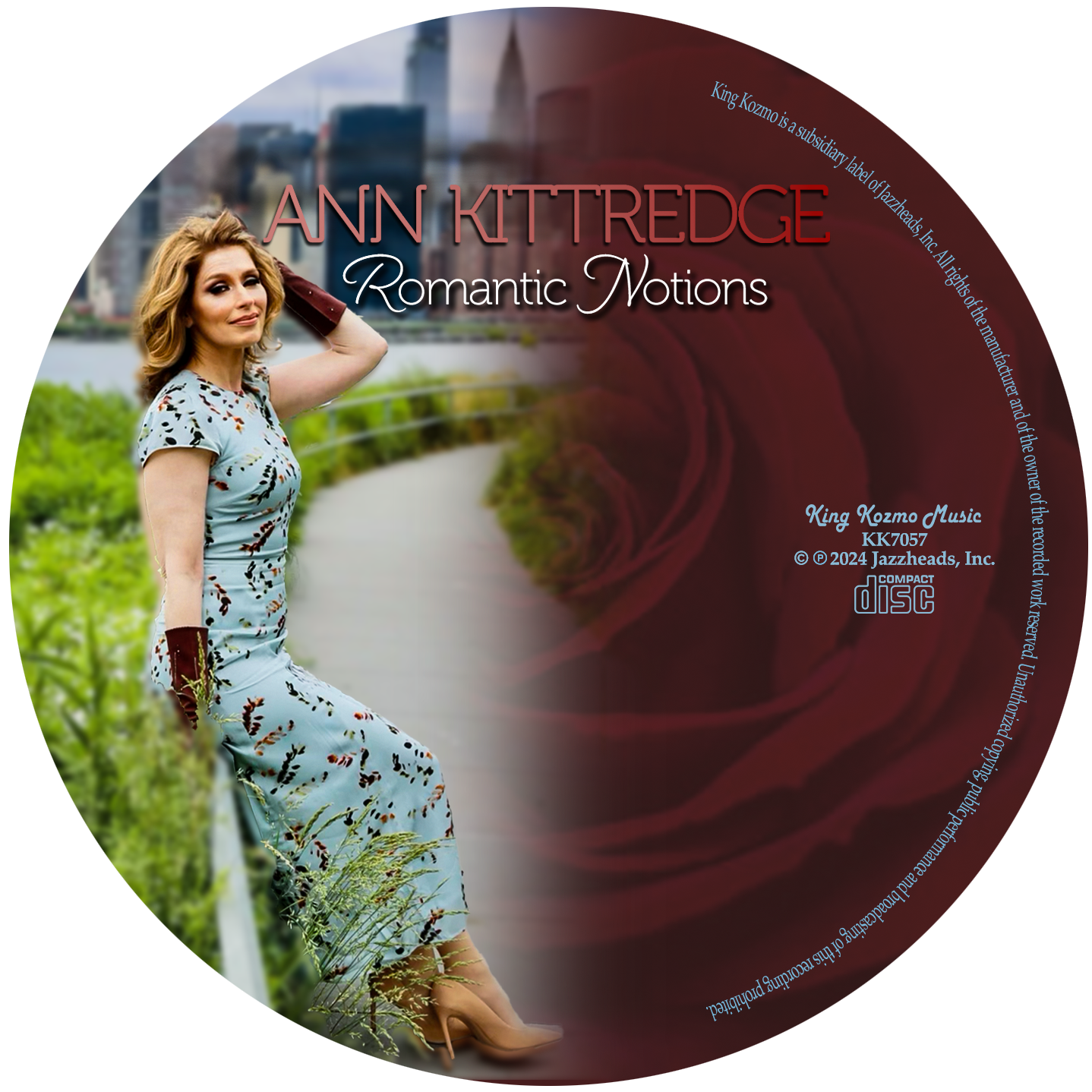
by barry kleinbort
album consultant
If you own Ann Kittredge’s previous CD outing, the award winning reIMAGINE, then you are already aware of Ms. Kittredge’s penchant for musical repertoire that not only traverses genres but, in one instance, even centuries. Ann had wanted her new album, Romantic Notions, to be even more diverse and ambitious, featuring a wider display of rhythms and sentiments. And, as a vital member of the Ann Kittredge creative team (along with musical director Christopher Denny and producer Paul Rolnick). I believe we have accomplished just that. Although you’ll find a few of the requisite love songs, the title is meant to be far more catholic and all encompassing. Besides the basic tropes of love, Ann gives musical voice to the seesawing emotional underpinnings that fuel, and sometimes dismantle, relationships: If you take the time to look (and listen), you’ll discover various facets of ”the courtship dance”: The flirtation, the elation, the separation, the devastation, and…for those of you who don’t care a jot about any of the aforementioned… the titillation. If you doubt my last remark, then immediately give a listen to “I Feel the Earth Move,” a Carole King warhorse from the 70s that has been outfitted with a new thermostat to control its heightened level of heat.
You’ll also find a few detours for other romantic notions, like motherhood and hero worship. Ann had wanted the album to include a lullaby but had no interest in doing an already existing one. I suggested “Together Wherever We Go,” a song written for the legendary Ethel Merman to sing in the legendary musical, Gypsy. The song’s authors, Jule Styne and Stephen Sondheim, wrote it as a raucous second act show biz turn, but here it has been tamed and transformed into a gentle lullaby for mother and child. There are songs by other recognized giants from Broadway (Lynn Ahrens and Steven Flaherty, Steven Lutvak) and Pop (Stevie Wonder, Bob Dylan, Jimmy Webb, and Billy Joel,) as well as formidable figures from the world of Country music (John Prine, Jon Vezner and Don Henry) and, in one instance, a less well known but stellar contributor from the pop music canon (Darnell White.). All of these writers have been treated with Ann’s unwavering musical sensitivity and respect.
Some albums take a long gestation period to come to fruition, but this one actually came together fairly quickly. Song suggestions, arrangements and programming all fell into place without a lot of sturm und drang. Such speed can happen when all the collaborators find themselves gratefully on the same page. If there was ever a disagreement, it never went unheard and was readily solved. Some times, as they say in the biz, it be that way. When listening to this album, I hope that you will not only feel the earth moving, but the unmistakable inevitability of artistry and talent. That was our hope. You’ll let us know if it’s the reality. In the meantime, enjoy.
Barry Kleinbort has earned the prestigious Edward Kleban Foundation Award for Lyric Writing, two Gilman-Gonzalez Musical Theatre Awards, the Second Stage Theater Writers Award for Musicals, the Jamie deRoy/ ASCAP award, two Back Stage Bistro awards and twelve Manhattan Association of Cabarets (MAC) awards for his directorial and songwriting efforts. He recently wrote the book for Cheek to Cheek: Irving Berlin in Hollywood at the YORK theater . He has written music, book and lyrics for many musicals both regionally and off-Broadway including WAS (with Joseph Thalken) and
13 Things About Ed Carpolotti starring Penny Fuller at 59 E 59. Also off-Broadway and on tour, he co-conceived and directed Len Cariou in his one-man show, Broadway and the Bard. He provided scripts for eight PBS TV specials and was an artistic consultant for “Cathouse: The Musical” for HBO. He has directed and/or written special material for a glorious roster of cabaret artists: Brent Barrett, Petula Clark, Marvin Hamlisch, Kaye Ballard, Rita Gardner, Regis Philbin, John Barrowman, Lorna Dallas, Liz Robertson, John Epperson, Tony Roberts, Anita Gillette, Karen Mason, Sylvia McNair, Jeff Harnar, Eric Michael Gillett, Gretchen Reinghagen, Loni Ackerman, Harolyn Blackwell, Heather MacRae, and many, many others.
Dedication
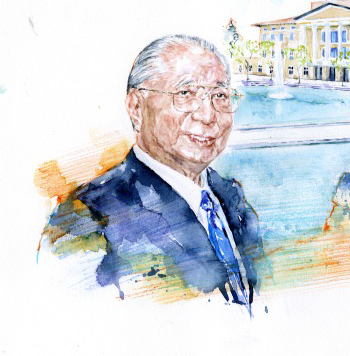
Dedicated in memory of Daisaku Ikeda, who has been my personal and creative inspiration for decades. I will forever value his guidance “to strive even higher, to do even better. The creative process is a desperate struggle to go beyond what we were yesterday. It is a battle against resting on our laurels, against the fear of losing what we have. It is an adventure into unknown territory.”
My Glorious Team
with Paul Rolnick and Randy Klein
Producer/Mix Engineer with the head of Jazzheads Music Group
Christopher Denny
MD and Arranger
Rex Benincasa
Drums & Percussion
Mary Ann McSweeney
Bass for I Just Called to Say I Love You, Mr. Tambourine Man, Garden, Together Wherever We Go, There You Are, Romantic Notions
Yoed Nir
Cello
Jay Leonhart
Bass on I Feel the Earth Move, I Just Want to Dance With You, I Just Wanted You to Know, You're My Home,
Sean Harkness
Acoustic and Electric Guitar
Paul Rolnick & Duff Harris
My producer/mix engineer with Eastide Sound studio engineer
Aaron Heick
Saxophone & Flute
Gary Oleyar
Violins
Alex Rybeck and M.P. Kuo
Music Director and 2nd Story Sound studio engineer for Garden
Alan Silverman
Masterer
Subscribe to newsletter
Get notified for our latest news and offers
Contact Us
We will get back to you as soon as possible.
Please try again later.
All Rights Reserved | Ann Kittredge

